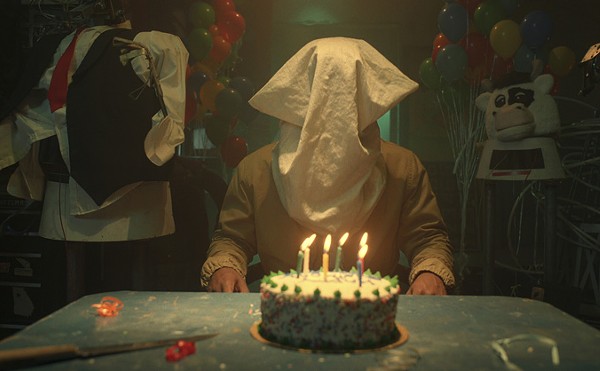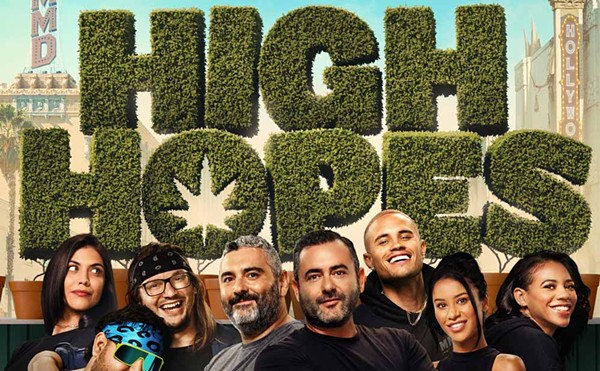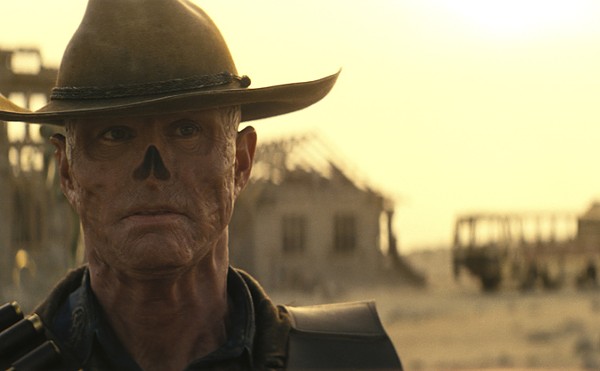;Zombie movies have been around since 1932, when White Zombie, starring Bela Lugosi, first hit the big screen, and yet, after 75 years of exploiting the same basic idea, Hollywood and its international equivalents continue to find ways to make the genre feel new and even innovative. We, the audience, eat it up too, with as much zeal as the zombies that slurp up gooey intestines in these gory flicks. Hell, in the past few years, we've gotten 28 Days Later, Dawn of the Dead, Land of the Dead, Shaun of the Dead and Planet Terror (from Grindhouse). This week there's 28 Weeks Later, which is much lamer than the original, but, hey, it's a movie about undead things that kill with a shark's apathy and are thus killed with video-game-like indifference, one after another, put a bullet in their head, and, fuck, fuck, fuck, there's just something viscerally awesome about that.
;; Zombie movies are the cinematic equivalent of playing Grand Theft Auto, without all the confusing social hang-ups and accompanying pangs of guilt. Zombies, you see, aren't human like the bitches who need slapping in Auto. Zombies are dead things that can be destroyed en masse, in any of a hundred different ways, and we never have to feel bad about enjoying said destruction since said destruction does not result in death; zombies are already dead. You can blame first-person shooter games for school shootings, but zombie movies are first-person shooter games, too. We just don't want to admit that, because then we'd have to admit the violence we're vicariously expressing by rooting for the zombie-fightin' "heroes" is equally dysfunctional or, in fact, just a natural, human expression we've evolved enough to be ashamed of.
;; Truth be told, though, zombie movies are more than just a way for the sick bastard in all of us to get his or her rocks off by watching Tom Savini behead a zombie in Dawn of the Dead or Simon Pegg paddle zombies to an existentially deeper state of death with a cricket bat in Shaun of the Dead. Zombie movies, you see, are science fiction in that the filmmakers use the empty, soulless zombies – blank slates, really – as canvases on which to splatter whatever social anxieties plague the current decade. Since the 1950s, the zombie has become an ever-evolving tool for social commentary – no better exemplified than with George A. Romero's now-classic Dead trilogy, Night of the Living Dead (1968), Dawn of the Dead (1978) and Day of the Dead (1985), which tackled subjects like racism, the Vietnam war and consumerism. It's arguable that every zombie movie released since Night of the Living Dead – incidentally, the first flick in which zombies ate flesh – is entirely derivative of it, succeeding or failing completely by measure of how well the movie, um, feeds off the original source.
;; Of course, there are exceptions – most notably Sam Raimi's Army of Darkness and Edgar Wright's Shaun of the Dead. The former is the first zombie satire that actually delivers and the latter is a brazen homage that never misses a bloody beat as it packs in the laughs. But there are exceptions to every rule, and so it's pointless to compare any of them to, say, Danny Boyle's loud and truly terrifying 28 Days Later. Though Boyle's zombies aren't technically zombies, but rather living beings infected by a "rage" virus, 28 Days is generally considered a zombie flick and one of the best of the past 20 years. Like Romero's early work, the British director uses his zombies to explore how society has gone awry and how it's not the external threat that destroys civilization, but civilization that destroys itself.;;
; ;This means it is not truly the zombies that pose the greatest problem, since for the most part (Boyle's being an exception), they are slow and sloppy killers, easy to outrun or bludgeon with anything from a rolling pin to a cricket bat. Despite zombie infestations, civilization seems sustainable – such as in Dawn of the Dead, when survivors band together to form a typical suburban family unit in their shopping-mall bunker. Day of the Dead, Land of the Dead, 28 Days Later; in all of these, we see survivors trying to cling to civilization and yet, in all of these, their ultimate downfall is when humanity fails. Human beings, you see, will find a way to destroy each other when the pressure is on, which is also one of the great ambiguities of zombie movies. We can only survive as a group, and yet the group will inevitably destroy itself. Zombies, one supposes, are how we distract ourselves in the meantime.
; [email protected]














